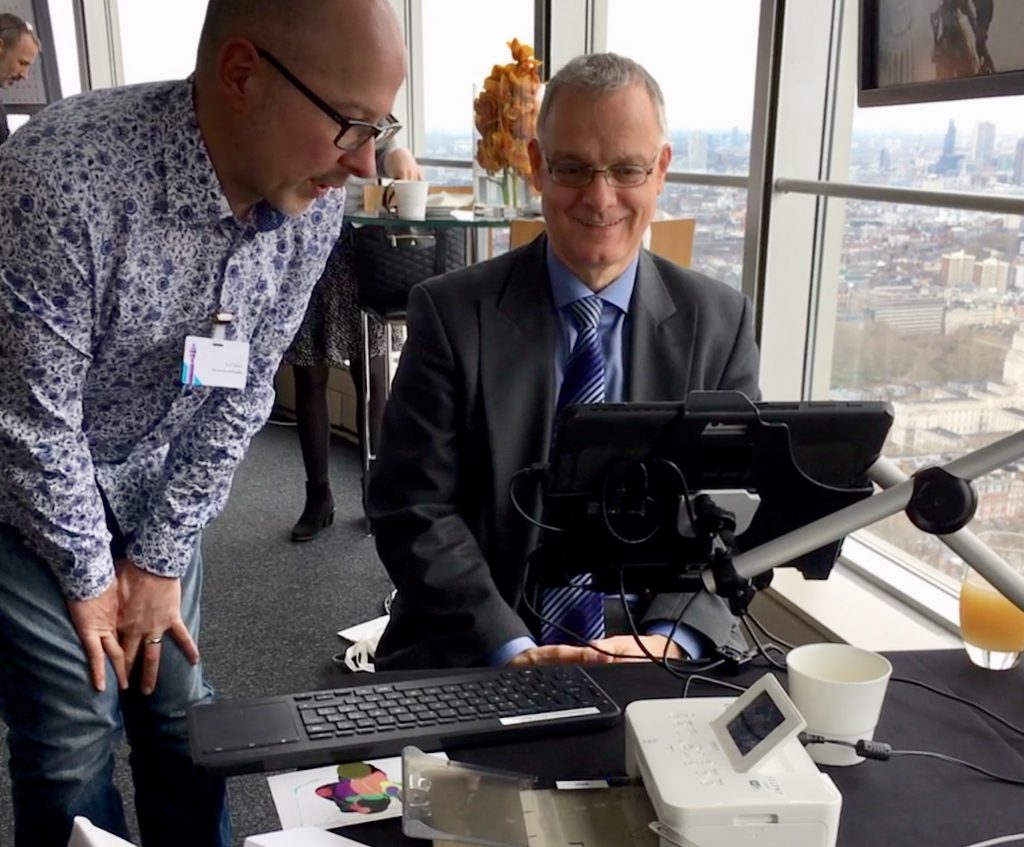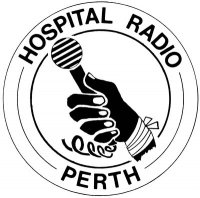One of our Straight Straight Talking Group‘s DJs will presenting their playlists at Hospital Radio Perth this summer! Georgie Williams has been volunteering with Perth Hospital Radio for a while now and has now been given her own show.
Category Archives: news
Straight Talking Group presents at CM 2021
This year’s Communication Matters (CM) conference will be fully online and our Straight Talking Group (STG) will be presenting their take on staying in touch via Zoom during the pandemic lockdown.
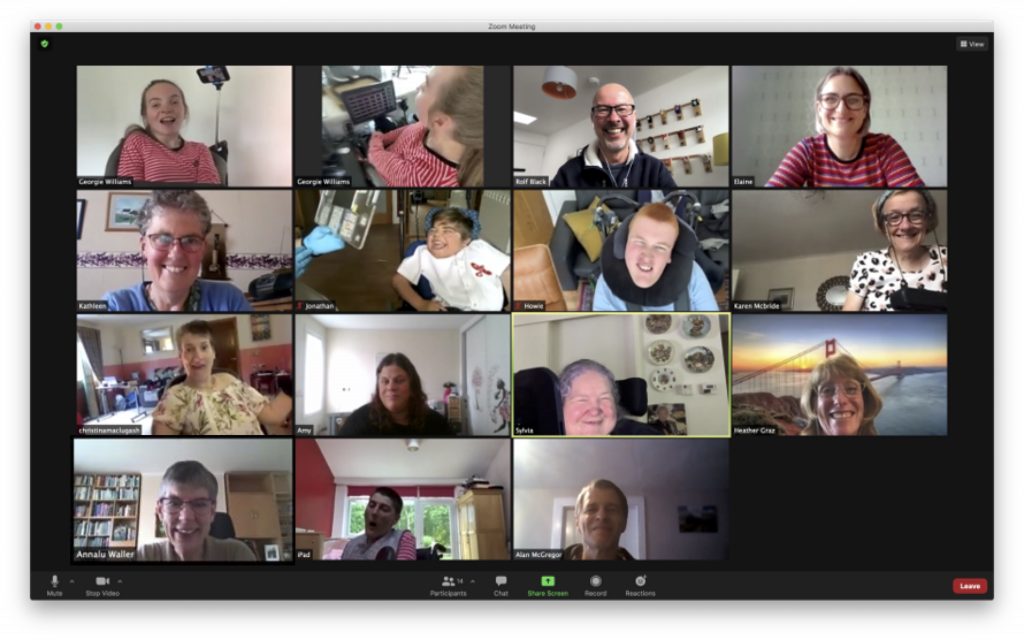
Our User Centre groups, including STG, had been affected, as had been so many other groups, by not being able to meet face to face during lockdown. STG successfully rose to the challenge of keeping up meeting by exploring and implementing video group calls. This can indeed be a challenge when your video conferencing platform is also your communication aid platform – all members of the STG use some form of AAC.
Read more about this challenge or even better, join the group at the CM Conference – registration is now open – for a presentation on the way to not only successfully meeting online but also keeping up teaching on AAC.
Launching the new MSc in Educational Assistive Technology (EduAT)
The Dundee AAC Research Group is proud to be launching the newly developed part-time MSc Programme in Educational Assistive Technology.

In collaboration with JISC (historically known as the “Joint Information Systems Committee”), their subject specialist Rohan Slaughter worked with Professor Annalu Waller and members of the AAC Research Group to develop this programme to provide assistive technology (AT) training and development.
Continue reading Launching the new MSc in Educational Assistive Technology (EduAT)As seen on TV: Best Paper Award at CHI 2020 for ACE-LP Publication
Nonspeaking individuals with motor disabilities often rely on typing on a computer with speech output in conversation with other people. However, even without a physical disability affecting the typing process, contributions by communication aid are too slow and error prone with typical typing rates of physically impaired person being between 5 and 20 words-per-minute. This is in contrast to the rate people speak, which is typically in the range of 100 and 140 words-per-minute. This difference in communication rate is referred to as the communication gap. This gap is currently very large, typically ranging between 80 and 135 words-per-minute and affects the quality of everyday life interactions for the users.
Continue reading As seen on TV: Best Paper Award at CHI 2020 for ACE-LP PublicationProfessor Waller in the News!
Our very own Professor Annalu Waller appears in the Evening Telegraph with a wonderful interview detailing how she, along with her Dundee AAC Research Group team, is working to make life easier for those with disabilities. Read the article online at the Evening Telegraph.
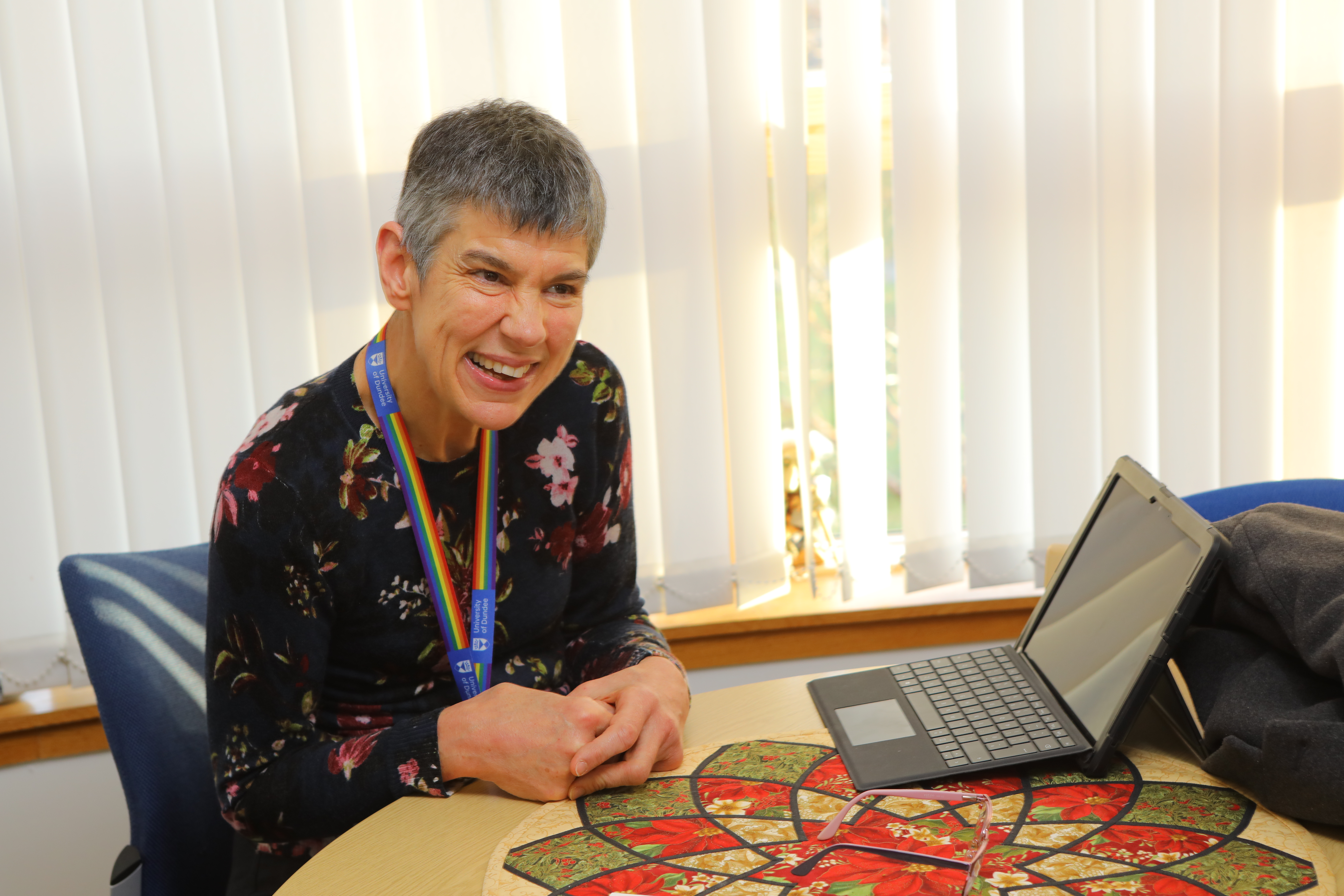
The DJ within the STG
At one of our Straight Talking Group (STG) teaching session with MSc students in AAC and AT we got to chat about what people are doing apart from their contributions to teaching and research. It’s been a while now that this was posted but it is always worth revisiting: Georgie works at Hospital Radio Perth – watch the clip to get a glimpse of her work as a key member of the team.
Georgie is a member of the Straight Talking Group (STG) here the User Centre in Computing, University of Dundee. The group supports both teaching and research and meets regularly to interact with students, lecturers and researchers.
The group also regularly reviews software and hardware for accessibility as part of our consultancy work. If you are interested in the group’s work or even want to become a member (if you are a person who uses AAC), please get in touch with Kathleen Cummins, contact details on our ‘Contact us’ page.
Technology Taster Day at V&A Dundee
On the 24 August 2019, our AAC research team presented “Painting with your Eyes” and “Chat like Stephen Hawking” at V&A Dundee Technology Taster Day.
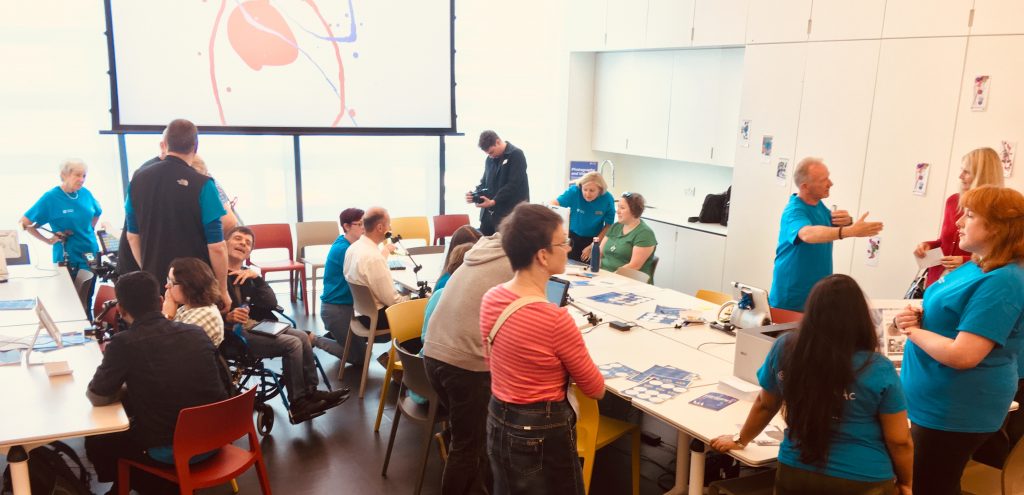
Giving visitors a chance find out more about access technology for people with physical disabilities, the highlight of the day was definitely the talk by Becky Tyler, a young woman with cerebral palsy, who has been interacting with her computer not with her hands but with her eyes. This enabled her to paint, to play and, probably most importantly, to talk!
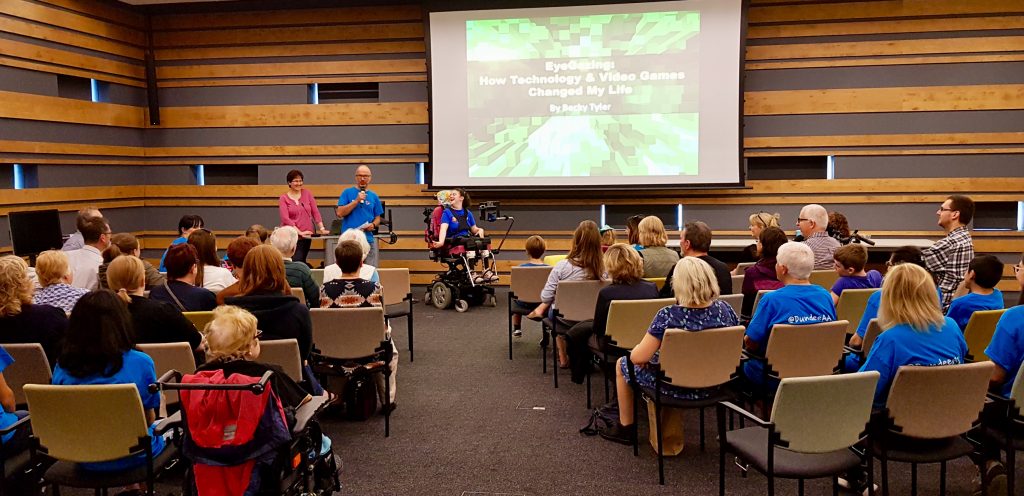
More than 150 people came to our session in the learning studio to try out how you can paint using your eyes only or to talk by pressing only one switch.
Dundee AAC Team at AAATE Conference in Bologna, Italy
We have three papers accepted for AAATE this year, and w/b 26th August Annalu (and Kathleen!), Rolf and Chris set off to present their work. This year’s conference has Global Challenges in Assistive Technology as its theme.
UPDATE: A very successful AAATE conference in the warm Italian sunshine, the team returns today (2nd Sept) suitably inspired.
Upcoming Keynotes
Considerations and Challenges in Life Story Research
6 June 2019 Trinity College Dublin
Prof Annalu Waller: Creative technologies, capturing stories
Body of Knowledge: Art and Embodied Cognition Conference,
27 – 29 June 2019 Deakin University, Melbourne, Australia
Society for the Study of Behavioural Phenotypes 22nd Educational Day and Research Symposium
4 – 6 September 2019 Birmingham
CIISE19 International Congress of Social and Educational Inclusion
24 – 25 October 2019 Bilbao
EPSRC’s Digital Economy 10 Year Showcase
Annalu, Kathleen and Rolf went to London for EPSRC’s Digital Economy Theme 10 Year Showcase. The Dundee team was chosen as one of 10 research projects funded through the theme to exhibit their activities at the BT Tower event in London.
EPSRC is celebrating the success of their Digital Economy Theme since its launch event 10 years ago in 2009, where Rolf and Annalu exhibited their “How was School today…?” project. More recently, Rolf and Annalu won a £10k EPSRC Public Engagement grant and for this year’s BT Tower event they showcased the “Painting with your eyes” workstation (here with John Baird, Head of RCUK’s Digital Economy Programme at EPSRC).
